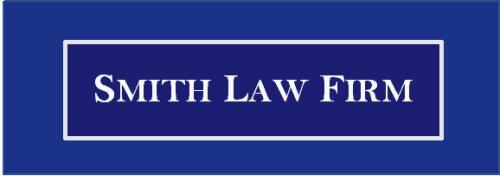Best Brokerage Lawyers in Toronto
Share your needs with us, get contacted by law firms.
Free. Takes 2 min.
Free Guide to Hiring a Real Estate Lawyer
List of the best lawyers in Toronto, Canada
About Brokerage Law in Toronto, Canada
Brokerage law in Toronto, Canada refers to the legal rules and regulations that govern the activities of brokers and brokerage firms in the city. This area of law covers a wide range of transactions, including the buying and selling of securities, commodities, and other financial instruments. The purpose of brokerage law is to ensure the fair and transparent operation of the brokerage industry, protect investors, and maintain the integrity of the financial markets.
Why You May Need a Lawyer
There are several situations where you may need a lawyer specializing in brokerage law:
- If you are planning to invest in securities or commodities and need legal advice to understand the risks and potential consequences.
- If you believe you were a victim of fraud or misconduct by a broker or brokerage firm.
- If you are facing disciplinary actions by regulatory authorities for alleged violations of brokerage laws.
- If you are a broker or a brokerage firm facing legal issues, such as contract disputes or regulatory compliance matters.
- If you need assistance in drafting or reviewing brokerage agreements, contracts, or other legal documents.
Local Laws Overview
In Toronto, Canada, brokerage law is primarily governed by the Ontario Securities Act, which regulates the trading of securities, the registration and conduct of brokers, and securities offerings. The Act establishes various regulatory bodies, such as the Ontario Securities Commission (OSC), responsible for enforcing the law and protecting investors. It is essential to comply with the provisions of the Securities Act and other related legislation to ensure lawful brokerage operations in Toronto.
Frequently Asked Questions
Q: Are brokers in Toronto required to be licensed?
A: Yes, brokers in Toronto must be licensed by the Ontario Securities Commission (OSC) to lawfully engage in brokerage activities. The licensing process involves meeting specific qualifications and fulfilling regulatory requirements to ensure the competence and integrity of brokers.
Q: How can I file a complaint against a broker or brokerage firm?
A: If you have a complaint against a broker or brokerage firm in Toronto, you can file a complaint with the Investment Industry Regulatory Organization of Canada (IIROC) or the Ontario Securities Commission (OSC). They will investigate your complaint and take appropriate actions if necessary.
Q: What are some common types of securities fraud in Toronto?
A: Common types of securities fraud in Toronto include insider trading, Ponzi schemes, pump-and-dump schemes, and unauthorized trading. It is important to be cautious and seek legal advice if you suspect any fraudulent activities.
Q: What are the penalties for violating brokerage laws in Toronto?
A: The penalties for violating brokerage laws in Toronto can vary depending on the nature and severity of the offense. They may include fines, license suspension or revocation, disgorgement of profits, and even criminal charges in some cases.
Q: Can I represent myself in a legal dispute involving brokerage matters?
A: While it is possible to represent yourself in a legal dispute, it is generally advisable to seek the assistance of a lawyer specializing in brokerage law. They have the expertise and knowledge to navigate complex legal processes and ensure your rights are protected.
Additional Resources
- Ontario Securities Commission (OSC) - Website: www.osc.gov.on.ca
- Investment Industry Regulatory Organization of Canada (IIROC) - Website: www.iiroc.ca
- Toronto Stock Exchange (TSX) - Website: www.tsx.com
Next Steps
If you require legal assistance in brokerage matters in Toronto, it is recommended to consult with a lawyer specializing in brokerage law. They will assess your situation, provide expert advice, and guide you through the legal process to ensure the best possible outcome.
Lawzana helps you find the best lawyers and law firms in Toronto through a curated and pre-screened list of qualified legal professionals. Our platform offers rankings and detailed profiles of attorneys and law firms, allowing you to compare based on practice areas, including Brokerage, experience, and client feedback.
Each profile includes a description of the firm's areas of practice, client reviews, team members and partners, year of establishment, spoken languages, office locations, contact information, social media presence, and any published articles or resources. Most firms on our platform speak English and are experienced in both local and international legal matters.
Get a quote from top-rated law firms in Toronto, Canada — quickly, securely, and without unnecessary hassle.
Disclaimer:
The information provided on this page is for general informational purposes only and does not constitute legal advice. While we strive to ensure the accuracy and relevance of the content, legal information may change over time, and interpretations of the law can vary. You should always consult with a qualified legal professional for advice specific to your situation.
We disclaim all liability for actions taken or not taken based on the content of this page. If you believe any information is incorrect or outdated, please contact us, and we will review and update it where appropriate.















